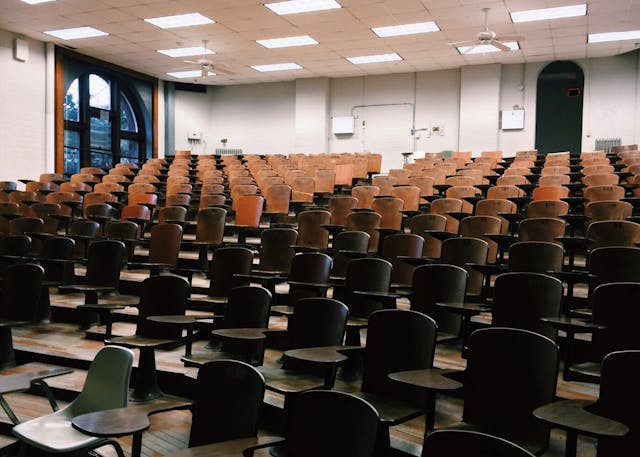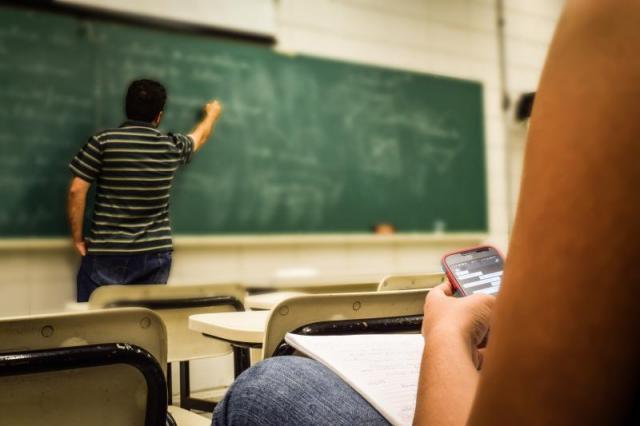Sexual violence in tertiary education: Aotearoa and international research and resources
Tue 16 Apr 2024
This news story highlights key Aotearoa and international research related to institutional responses to sexual violence in tertiary settings including Wānanga, universities, polytechnics and institutes of technology.

Sexual violence in tertiary education
Increasingly media have highlighted issues experienced by victim/survivors of sexual violence in tertiary education settings. For example, a recent Stuff article highlighted that Police data shows increasing reports of sexual assaults at schools and tertiary institutes. Victim/survivors, advocates and academics have long been calling for better, safer responses to sexual violence. Advocates and institutions have been developing and implementing policies and practices to address sexual violence in these settings. We highlight some of the key research and resources from Aotearoa, Australia and Canada.
Sexual assault experiences among tertiary students
Researchers at the University of Otago surveyed more than 1500 students about their experiences of harassment, threats and sexual assault in 2019 while at university. They found that 28% of people who completed the survey reported they had experienced at least one form of sexual assault with 14.9% reporting experiences that meet a definition of rape. Only 8% of people who reported sexual assault in the survey disclosed the assault to a health professional.
Detailed findings from the research are available in the article Sexual assault experiences of university students and disclosure to health professionals and others (2020). Other key findings include:
- Almost 1/3 of cisgender (a person whose gender aligns with their sex assigned at birth) females reported experiencing at least one form of sexual assault.
- Queer cisgender females were more likely to report having experienced sexual assault compared to straight cisgendered females.
- Queer cisgender males (over 1 in 5) were twice as likely to report having experienced sexual assault compared to straight cisgender males (around 1 in 10).
- Queer respondents were more likely to report having experienced attempted rape or rape compared to straight respondents.
- Cisgender males were less likely to report having experienced rape compared to cisgender females and less likely to have experienced coercion than cisgender females and gender diverse people.
- Reported sexual assault varied by ethnicity: 31% Māori, 31% New Zealand European/Pākehā, 28% Pacific, 19% Asian and 14% for other non-White/non-Polynesian ethnicities.
- Of people who reported experiencing sexual assault, 88.6% indicated that the perpetrator was male.
Also see related findings in the report Campus climate for students with diverse sexual orientations and/or gender identities at the University of Otago, Aotearoa New Zealand (2016).
The Australia-based Social Research Centre published findings from a survey of more than 43,000 students about lifetime experiences. They found that 30.6% of university students reported having experienced sexual assault at least once in their lifetime. Female students (41.8%), transgender students (42.9%) and students who were non-binary or identified as another gender (56.1%) were more likely to have reported experiencing sexual assault in their lifetime than male students (14.1%). Learn more in the report National Student Safety Survey: report on the prevalence of sexual harassment and sexual assault among university students in 2021.
In 2016, Thursdays in Black surveyed people about their experiences of sexual violence while enrolled in tertiary education in Aotearoa. The report, "In our own words": student experiences of sexual violence prior to and during tertiary education (2017), summarises findings of people's experiences with sexual violence, reporting the violence, seeking help and institutional responses.
Aotearoa institutional responses
The article, What are we learning from Te Kawa o te Ako about eliminating violence? (2022), looks at what could be learned from 20 years of Te Kawa o te Ako, Te Wānanga o Raukawa’s kaupapa solution to support and maintain a culture for learning and teaching including safety. The article documents the challenges and changes over time and highlights how initiatives can create and foster collective responsibility for responding and holding people accountable when violence has occurred.
Te Wānanga o Raukawa also launched He Ara Mataora in 2018. He Ara Mataora project was started to support communities based on the Wānanga experience with Te Kawa o te Ako. Te Wānanga o Raukawa recognised the lack of options for people wanting to end violence without using the State’s criminal system, saying the negative impact of the State's criminal system “...makes our communities less safe, and makes it harder for people to get the support they need. … We need ways to respond to violence that strengthen our communities.” He Ara Mataora is a website with information and tools to help people who want to stop violence without using state services such as police and courts, social workers or agencies.
Academics in Aotearoa and Australia recently looked at practices within 4 universities including University of Otago, Monash University, University of Newcastle and University of Technology Sydney. In their article, A comparative account of institutional approaches to addressing campus-based sexual violence in Australia and Aotearoa New Zealand (2023), they write:
"Our key message is the importance of a whole-of-university approach. We have found that whole-of-university approaches are becoming more common, with social-ecological models guiding complex bundles of interventions that target the social, structural, and systemic determinants of campus-based sexual violence. Such an approach requires strong leadership and collaboration within, across, and beyond universities, informed by evidence of good practices and predicated on a commitment to rigorous evaluation."
To learn more about the practices at the University of Otago, see the article A whole campus approach to sexual violence: the University of Otago Model (2019).
Most wānanga, universities, institutes of technology and polytechnics in Aotearoa have policies that address sexual harassment which may also include sexual violence. These are sometimes within broader harassment and bullying policies, and misconduct policies. Practices and policies in this area continue to change and improve.
International institutional responses
In 2018, the Government of Canada allocated $5.5 million to develop a National Gender-Based Violence Campus Draft Framework. Possibility Seeds, a Canadian social change organisation worked with survivors, student researchers, frontline workers and policy experts on the report Courage to Act: Developing a National draft Framework to Address and Prevent Gender-Based Violence at Post-Secondary Institutions in Canada (2019). Possibility Seeds now leads Courage to Act, a federally funded, multi-year national collaborative project to address and prevent gender-based violence at post-secondary institutions in Canada. The Courage to Act website offers a knowledge hub, free webinars and evidence based tools. However, a recent Conversation article highlighted that Provincial policies on campus sexual violence are inconsistent across Canada.
In Australia, a national Action Plan Addressing Gender-based Violence in Higher Education was launched in February 2024. The Plan outlines 7 actions:
- "establish a National Student Ombudsman
- higher education providers will embed a whole‑of‑organisation approach to prevent and respond to gender-based violence
- introduce a National Higher Education Code to Prevent and Respond to Gender-based Violence
- enhance the oversight and accountability of student accommodation providers
- identify opportunities to ensure legislation, regulation and policies can prioritise victim-survivor safety
- increase data transparency and scrutiny
- regular review of progress against the Action Plan."
Learn more about the history before the Australian national Action Plan was launched, and the work ahead, in The Conversation article 'Change the Course’ set out to end sexual violence and harassment on campus. 5 years on, unis still have work to do.
Our Watch, a national organisation focused on primary prevention of violence against women and children in Australia, has developed a website with resources and information for TAFEs (Technical and Further Education) and universities in Australia.
To learn more
To further explore work in this area see the following Aotearoa research articles:
- Pro-social bystander sexual violence prevention workshops for first year university students : perspectives of students and staff of residential colleges (2021)
- A qualitative exploration of barriers to university students’ willingness to attend sexual violence prevention workshops (2021)
- A mixed-methods pilot study of the EAAA rape resistance programme for female undergraduate students in Aotearoa/ New Zealand (2019).
Media has continued to highlight calls from students and advocates for consent education in schools and tertiary settings. Associate Professor Melanie Beres has previously written about the need to move beyond consent education, saying that:
"If we want to reduce Aotearoa’s sexual violence rates, we need to shift our focus from solely teaching young people about consent and instead work to dismantle harmful gender norms that have trapped our youth for generations."
To further explore consent in relation to sexual violence prevention see the following:
- The failed promise of consent in women's experiences of coercive and unwanted anal sex with men (2024)
- Is consent enough? What the research on normative heterosexuality and sexual violence tells us (2022)
- He Said, She Said, They Said: The Place of Gender in Sexual Violence Theory and Prevention (2021)
- The Complexities of Sexual Consent Among College Students: A Conceptual and Empirical Review (2016)
- "Spontaneous" Sexual Consent: An Analysis of Sexual Consent Literature (2007).
You can also explore our database under the search tertiary education, tertiary students or whare wānanga.
Related media
Sexting: Experts on whether abstinence-only text sex education is enough, NZ Herald, 23.03.2024
Massive under-reporting of sexual harassment and misconduct uncovered at UC, Canta, 20.10.2023
Almost 150 reports of relationships between teachers and students, RNZ, 17.10.2023
Sexual assault claims average one each month at Victoria University halls, Stuff, 28.11.2022
Grappling with university relationships, Otago Daily Times, 19.09.2022
Wronged academic gets public apology as high-profile #MeToo case comes to an end, Stuff, 25.08.2022
Top academics call out sexual harassment, Newsroom, 24.07.2022
Reports of sexual assault in schools, universities up 70% since 2015, Stuff, 21.06.2022
Survivors hopeful about uni’s change, Otago Daily Times, 13.05.2022
The hidden barrier holding metoo back - and the women who are challenging it, Stuff, 12.05.2022
Broadcasting student accused of assault allowed back into course, Star News, 07.04.2022
I was the first to know my professor was a sexual predator, Stuff, 31.03.2022
University of Auckland reviews sexual misconduct complaints after two similar cases, RNZ, 26.03.2022
Calls for reform after alleged sexual assault case at Auckland Uni, Stuff, 24.03.2022
Alleged sexual assault case: Auckland University admits disciplinary process flawed, RNZ, 22.03.2024
Third of sexual assaults on university students go unreported - study, RNZ, 09.10.2020
A third of NZ university students are sexually assaulted, a study suggests, Stuff, 06.06.2019
Image: Pixabay on Pexels





